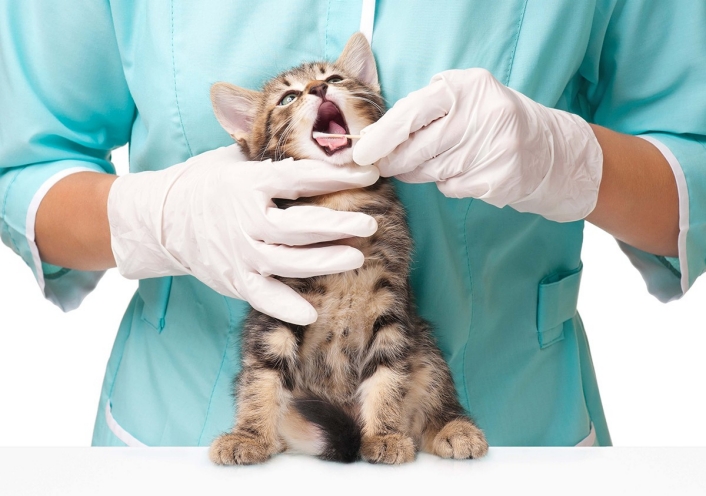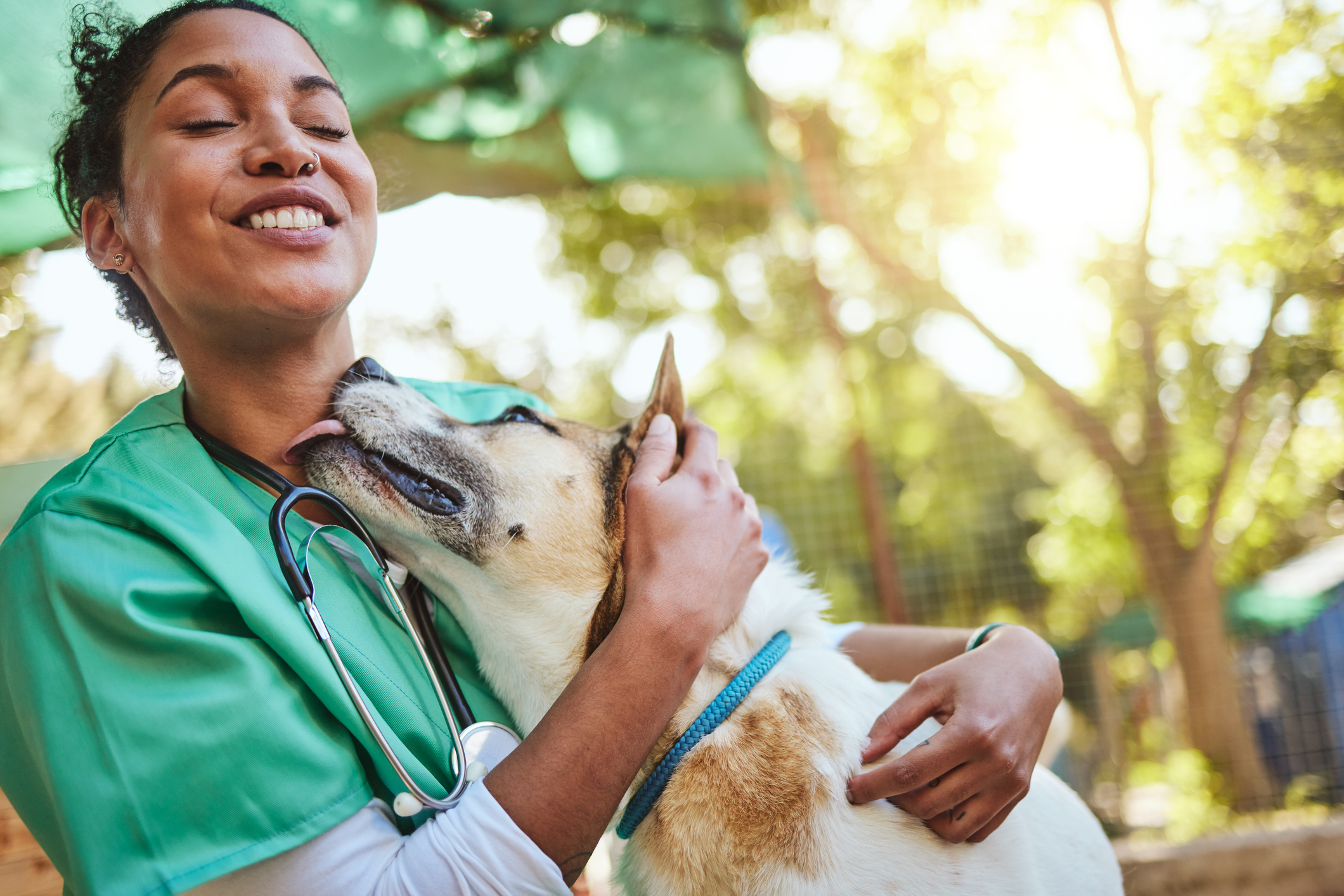Exactly How Pet Health Checkups Help Identify Early Signs of Health Problem and Keep Your Pet Healthy And Balanced
Vaccination Guidelines From Your Relied On Veterinarian
Inoculation guidelines supplied by your relied on vet play a vital role in safeguarding your family pet's health and wellness. In addition, resolving typical misunderstandings surrounding vaccines can additionally enhance pet owners' confidence in these precautionary procedures.

Importance of Inoculations
Vaccinations play a critical function in securing animals versus a series of preventable diseases. By promoting the immune system to identify and battle certain virus, vaccines dramatically lower the occurrence of transmittable conditions that can influence a family pet's health and wellness and longevity. Not just do vaccinations safeguard private pets, however they additionally add to herd immunity, thus lowering the general frequency of diseases in the family pet population.
Timely vaccinations aid to minimize the spread of diseases such as rabies, parvovirus, and distemper, which can have severe effects for both human beings and pets. Inoculations are typically a need for boarding centers, grooming solutions, and dog parks, making them necessary for those who wish to mingle their animals.

Core Vaccinations for Animals
While the details inoculation needs of pet dogs can differ based on private variables, core injections are globally recommended to secure against the most typical and severe illness (Vet Enterprise). Core vaccinations are those considered essential for all pets, regardless of their way of living or geographic location, as they secure against extremely infectious and possibly fatal health problems
For dogs, the core injections include those for canine distemper, parvovirus, adenovirus (hepatitis), and rabies. Adenovirus can result in liver disease, while rabies is a zoonotic condition that poses a risk to both animals and people.
In cats, core vaccines include feline panleukopenia, feline calicivirus, feline herpesvirus (rhinotracheitis), and rabies. Feline panleukopenia is an extremely contagious viral disease that affects the body immune system and intestinal tracts. Calicivirus and herpesvirus are significant factors to top respiratory infections in cats, while rabies stays a crucial issue for public health and wellness.
Consult with your veterinarian to guarantee your animals obtain their core vaccinations on time.
Non-Core Vaccines Explained
Non-core vaccines are tailored to deal with certain dangers associated with a pet dog's atmosphere, exposure, and lifestyle to certain conditions. Unlike core injections, which are universally advised for all animals, non-core vaccinations are thought about based upon private situations. These vaccines are especially important for animals that may come across unique pathogens due to their geographical area, traveling routines, or tasks.
Examples of non-core vaccinations include those for Bordetella bronchiseptica, which is linked to kennel coughing, and Lyme illness, triggered by ticks. Family pets that regularly communicate with other animals, such as those in boarding facilities, canine parks, or grooming environments, may gain from Bordetella vaccination. In a similar way, if you live in a location where Lyme illness prevails, immunizing versus this disease can be a prudent selection for outdoor-loving canines.
Various other non-core injections might include those for leptospirosis, canine influenza, and feline leukemia, depending on the particular risk factors present. It is necessary to have an extensive discussion with your veterinarian regarding your pet dog's lifestyle and the potential need for these vaccines, ensuring a customized vaccination strategy that best safeguards your fuzzy buddy.
Inoculation Schedule Summary

As animals click now grow, it is very important to follow the recommended booster vaccinations. Vet Enterprise. For grown-up animals, core vaccinations are normally offered each to 3 years, depending on the specific vaccination and neighborhood policies. Non-core vaccinations may be recommended based on way of life elements and local illness frequency, demanding a tailored technique
Routine vet exams are critical for updating vaccination schedules. Your veterinarian can offer assistance on one of the most appropriate booster shots for your pet dog, factoring in age, wellness standing, and environmental risks. By staying positive and notified, animal owners can ensure their furry companions receive effective and timely inoculations, therefore guarding their health and wellness and well-being throughout their lives.
Common Misconceptions Regarding Vaccinations
Misconceptions concerning family pet vaccinations can lead to complication and hesitation amongst pet dog owners pertaining to the booster shot procedure. One prevalent myth is that injections are unnecessary for interior family pets. While it's true that indoor animals encounter lower dangers, they are not completely immune to diseases, as pathogens can be introduced with different methods, consisting of human apparel and various other family pets.
One more mistaken belief is that vaccines can trigger the illness they intend to stop. Actually, the majority of injections contain suspended or undermined virus, which can not create condition in healthy and balanced pets. Some pet dog proprietors additionally think that their animals should not be vaccinated if they are already healthy and balanced; nevertheless, inoculations are an aggressive action that helps avoid the beginning of illness.
In addition, numerous family pet owners are afraid that injections will certainly cause lasting health and wellness issues. While adverse effects can occur, they are short-lived and usually light. The benefits of vaccination-- securing animals from potentially serious conditions-- far surpass the threats. Comprehending these typical myths is vital for responsible animal possession and making certain the health and wellness and safety of your hairy buddies. Always consult your veterinarian for accurate info tailored to your animal's particular needs.
Final Thought
In recap, adherence to inoculation guidelines is vital for making certain the health and durability of pets. Core vaccinations supply important defense versus major conditions, while non-core injections deal with particular risks based on specific way of lives. Developing a comprehensive inoculation timetable, combined with normal veterinary check-ups, promotes optimum wellness administration. Dispelling usual myths bordering inoculations further reinforces the significance of informed decision-making in pet treatment. Eventually, a proactive approach to inoculations is crucial for maintaining pet dog wellness.
Not just do inoculations protect private animals, yet they additionally click to investigate add to herd immunity, consequently reducing go right here the general prevalence of illness in the pet population.
Mistaken beliefs about pet dog vaccinations can lead to complication and unwillingness amongst animal owners pertaining to the immunization procedure. While it's true that indoor pet dogs face lower dangers, they are not completely immune to illness, as pathogens can be presented with different means, consisting of human clothes and other family pets.
Some pet dog proprietors also believe that their family pets should not be immunized if they are currently healthy; nevertheless, inoculations are a positive procedure that assists stop the beginning of illness.
The benefits of inoculation-- securing pet dogs from possibly dangerous illness-- far surpass the risks.